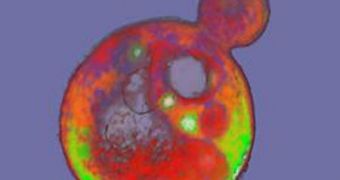Following a series of new scientific investigations, researchers believe that they may have finally found the answer to a very old question – why are not cells capable of producing perfect copies of themselves over prolonged periods of time? It's known that this ability works flawlessly when a person is young, and that it starts to deteriorate over time, causing aging. Now experts say that they identified a family of proteins that play a very important role in this phenomenon, Nature News reports.
The family of molecules is called multidrug resistance proteins, and researchers say that its members are crucial to cell's property of passing molecules across their membranes, through a pumping action. What is even more important in this investigation is the fact that the same mechanism the team identified may be involved in allowing stem and cancer cells to continue dividing even under adverse conditions. In addition, scientists say, it may be that the finding could explain why stem cells continue to divide continuously, without aging and losing their ability to multiply.
The new experiments were conducted on yeast cells, but the researchers believe that the findings may also apply to other types of organisms, of increased complexity. In a paper published in the July 25 issue of the esteemed scientific journal Nature Cell Biology, scientists from the Stowers Institute for Medical Research, in Kansas City, Missouri, explain that yeast cells for example can only produce between 20-30 daughter cells. After this number if reached, the mother cells loses its ability to multiply, and dies. The exact mechanism that underlies this process remained a mystery until not long ago.
The proteins that the team identified are not unknown to science. One of the things that experts already knew about multidrug resistance (MDR) proteins is the fact that these molecules play an important role in helping tumors and cancer cells expel anti-cancer drugs. The group also discovered that yeast cells specifically engineered to express lower amounts of MDR proteins tended to produce less daughter cells than those left unaltered. This is in tune with the fact that cancer cells contain vast amounts of MDR molecules, which apparently makes them immortal. Such research may provide oncologists with new methods of addressing the deadly condition.

 14 DAY TRIAL //
14 DAY TRIAL //